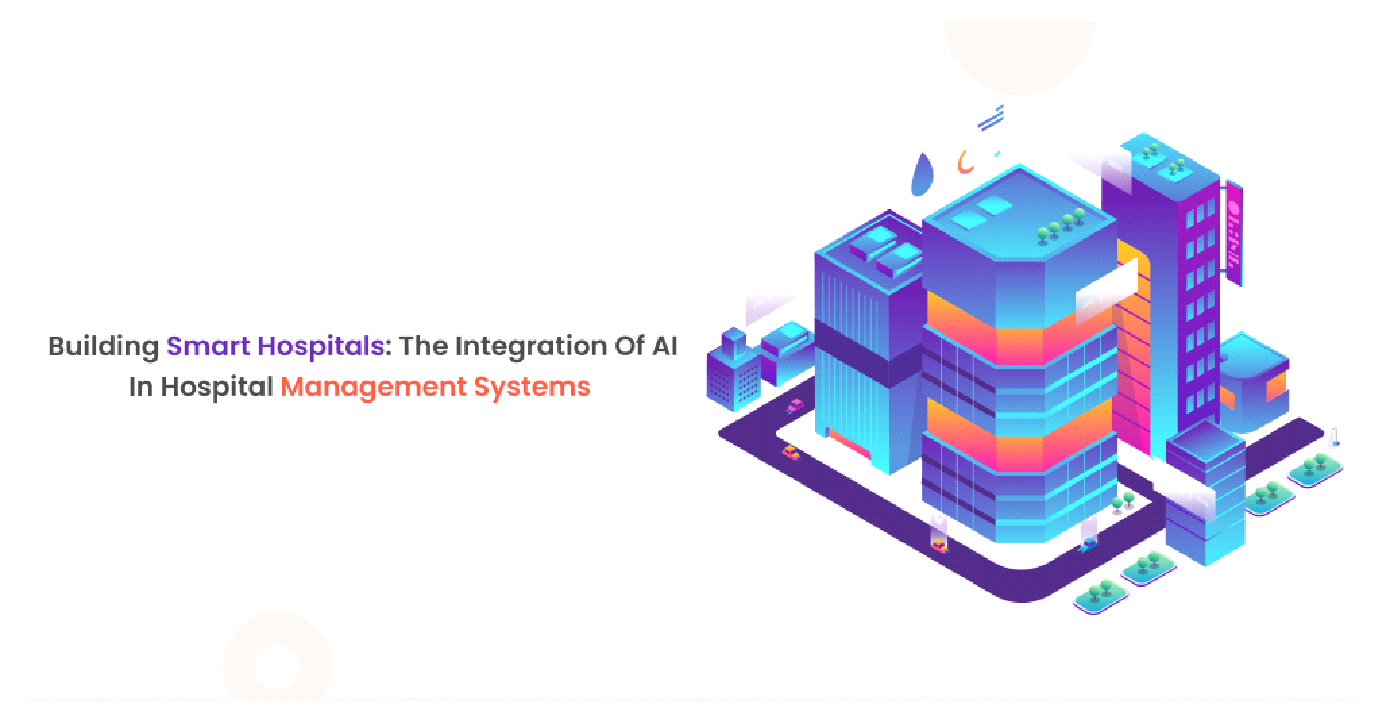Introduction:
Smart Hospitals integrate AI with the Hospital Management System(HMS & HIMS) which shapes the healthcare delivery process(Collectors Data) in an efficient manner that otherwise requires human judgment and intelligence(hypothesis-conclusion ). In the hands of emerging technologies, smart hospitals enhance patient care, operations, and resource management. Hospital Management Systems & Hospital Information Management System based on AI-driven genetics to support diagnostics, predict patient-specific needs, and allow more efficient administrative tasks makes the creation of a truly proactive and tailored healthcare ecosystem possible.
Understanding Hospital Management Systems
The importance of Hospital Management Systems (HMS) cannot be overstated in the current era of efficient medical care, and high-quality patient care. A Hospital Management System (HMS) is a computerized system used to manage large amounts of data for hospital operations and administrative functions. By automating operations like patient registration, appointment scheduling, billing, and electronic medical records, these systems enhance the convenience of workflow.
This will add important real-time data elements to an existing legacy HMS – which traditionally involves a ton of manual data entry & fragmented processes. This is where AI-assisted HMS comes in. These systems with AI integration overhaul hospital operations by automating and intelligently analyzing data. An AI-driven HMS can forecast the number of incoming patients being admitted to hospitals, optimize hospital resource utilization, and provide decision guidance for clinicians.
Benefits of AI in Hospital Management Systems
Incorporating AI in Hospital Management System (HMS) in India is beneficial in manufacturing various aspects of profound changes in healthcare setups. Here are some key advantages:
- Enhanced Patient Care: Through HMS, immense data either from the Electronic Medical Records (EMR) or Electronic Health Records (EHR) can be processed through Artificial Intelligence for the development of an effective treatment plan and prognostication of the patient’s conditions. This is because it promotes the accurate documentation of patients’ details and history, thus enhancing health delivery.
- Operational Efficiency: AI is also used to provide clerical services like appointment setting, accounting, and entry of patient details. This cuts down time, effort, and frequency of employee errors hence freeing up time for the health professionals and paraprofessionals to attend to more patients.
- Predictive Analytics: Accurate admission rate predictions are possible through the use of predictive analytics hence enabling the governors of hospitals to forecast the number of patients, staff schedules, and resources thus improving resource utilization. The strategic plan adopted by the hospitals is to be well prepared to accommodate a stream of patients and respond to emergencies.
- Data-Driven Decision Making: Real-time data technologies could be processed and analyzed by AI systems that will help manage a hospital. This fosters and supports evidence-based decision making ultimately enhancing resource utilization and efficiency in hospital ramifications.
- Improved Patient Interaction: Some applications include using natural language processing to develop AI chatbots and virtual assistants that help receive messages from the patients and also address their queries, set appointments, and disseminate information and other tasks to make the experience of the patient more fruitful and less burdensome on the human personnel.
Future Trends in Smart Hospital Development
The continual evolution of smart technologies intended for hospital development is entering that specific phase, as they will change the healthcare system, and Hospital Management Systems or HMS are becoming a distinctive component of healthcare. Here are some key trends shaping this future: Here are some key trends shaping this future:
AI and Machine Learning: Further development and integration of AI and machine learning in HMS will persist to facilitate enhanced prospects for predictive analytical approaches and patient-specific emergency treatment strategies. These technologies will help the hospitals in predicting the expectations of patients and properly utilizing the resources within the hospital to positively affect the general health of the patient.
Telemedicine and Remote Care: Telehealth will continue to evolve supported by the powerful HMS that embeds telemedicine capabilities. This will also enhance the consulting process by ensuring patients gain improved access to medical consults hence curtailing the physical consultations and improving access to health care, especially to those in rural areas.
Blockchain for Data Security: The two major technological trends that will be applied in HMS are blockchain technology to improve data security and privacy. It will also confirm that patients’ records are kept safely and securely and cannot be altered once shared, which will address such issues as the leakage of patients’ information and ensure that they meet set standards at all times.
Robotic Process Automation (RPA): In healthcare, RPA will minimize any possible mistakes that may be made while completing repetitive administrative tasks to allow healthcare personnel to assist patients. This should enable functional efficiency in hospitals as well as improvement of the patients’ experience.
Conclusion:
Altogether, the application of AI in the Hospital Management Systems (HMS) of the healthcare sector is enhancing the way of functioning of a hospital and the quality of patient care. In this paper, we articulate how the current state of HMS is creating the foundations for intelligent, adaptive healthcare organizations through the application of AI technologies that increase efficacy, strengthen resource management, and demonstrate the capacity to increase the effectiveness of patient care. The other key benefit of the change is that it is a move up in improving proactive, quality health care services delivery.




